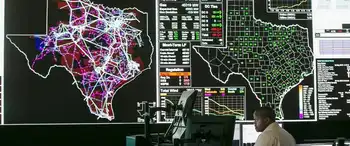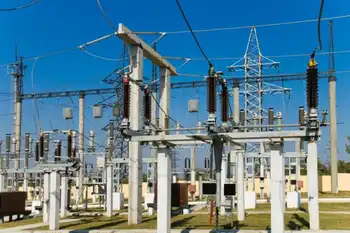National Grid seeks hike
But in documents dated July 3, it requested approval to raise the “standard offer” rate that applies to most electric customers to 12.4 cents per kilowatt hour. The typical residential customer, using 500 kWh per month, would see the household electric bill rise $16.67 per month to $93.44.
“Both crude oil and natural gas prices have increased since the company’s May 23rd request for a Standard Offer Service rate adjustment from 9.2 cents per kWh to 11.5 cents per kWh,” Thomas R. Teehan, National Grid senior counsel, wrote in the company’s latest filing with the PUC. “Based on this more recent analysis, the company estimates an under recovery of $104.0 million will result if the current Standard Offer rate of 9.2 cents per kWh were to remain in effect through the end of this year. The Standard Offer Service rate necessary to eliminate that projected under recovery is 12.4 cents per kWh.”
“Both natural gas and crude oil prices have increased in excess of 10 percent since mid-May, when the company submitted its original rate proposal,” Teehan noted. And, “the potential exists for fuel prices to increase even beyond current levels.”
The company also is currently seeking a 10-percent increase in local rates for natural gas – a request that, like its electric-rate request, dates back to late May.
Both requests were criticized last month by the office of R.I. Attorney General Patrick C. Lynch, in a memorandum to the PUC penned by Special Assistant Attorney General William K. Leuker.
Although Leuker began by describing the utility as “a socially responsible corporate citizen doing a tough job in an economy that… has been increasingly unfavorable,” and acknowledged that most of National Grid’s recent rate requests “have been tied directly to spiraling fuel costs, and not to the costs of distribution and transmission,” he went on to add that “the present case” is at least the 13th since early 2001 in which National Grid has sought to raise Standard Offer electric rates.
Seven years ago, Leuker noted, the average electric customer in the state paid about $55.75 per month. “Unfortunately for all of us, ratepayer income has not kept pace, forcing ratepayers to make a lot of very hard choices if they are to keep the lights on and their homes and businesses open.”
He called for a reevaluation of the manner in which utility reimbursements are calculated, writing that “given the worsening economy… utilities should be able to attract investors even with a slightly lower, but still virtually guaranteed, return on equity.
“The best way to ensure that all segments of the economy share the pain of current fuel costs fairly is to look not only at the energy component of the monthly bills, but at all components, with a view toward determining where cuts may be made to offset some of the increases,” Leuker said.
“Such questions just do not apply,” Teehan wrote in National Grid’s reply.
“This docket does not relate to the company’s return on rate base for distribution service. The company is entitled by statute to recover its commodity costs in providing standard offer service,” under R.I. General Law § 39-1-27.3(b), Teehan wrote. “Further, the company’s distribution rates are subject to a rate plan settlement from Docket 3617 that does not permit a review of the company’s return on common equity unless the company is exceeding its allowed return. In such case, there is a mechanism in place to share any excess earnings with customers. The Department of the Attorney General was a party to that settlement.”
Moreover, he said, the company’s return on equity for the 12 months ended Dec. 31 “was only 5.69 percent. This confirms the fact that the return on equity ‘allowed’ in a rate case is by no means guaranteed.”
Teehan cautioned in that June 25 letter, and again in National GridÂ’s July 3 rate filing, that to delay a rate-hike now would only mean even higher rates later as the utility recouped its losses.
“There also was a comment in the Memorandum that appears to suggest that the commission may make a decision on Standard Offer cost- recovery based on a policy pronouncement that ‘ratepayers should not have to bear the full economic impact of spiraling fuel costs by themselves,’ Teehan wrote, citing the state memo.
“Although it is understandable that consumer advocates would find it very attractive to have the commission simply order the company to absorb electric power costs to mitigate bill impacts, the company is compelled to point out that applicable legal and constitutional standards do not allow for ratemaking to be determined based on a principle of ‘sharing the pain.’ The company has a legal right to recover the cost of electric supply that it has purchased for the direct benefit and use of Standard Offer service customers.”
Related News

Texas Weighs Electricity Market Reforms To Avoid Blackouts
HOUSTON - The Public Utility Commission of Texas is discussing major reforms to the state’s electricity market with the purpose to avoid a repeat of the power failures and blackouts in February 2021, which led to the death of more than 100 people and left over 11 million residents without electricity for days.
The regulator is discussing at a meeting on Thursday around a dozen proposals to make the grid more stable and reliable in case of emergencies. Proposals include paying power generators that are on standby when the grid needs backup, and requiring companies to pre-emptively buy capacity to meet…





